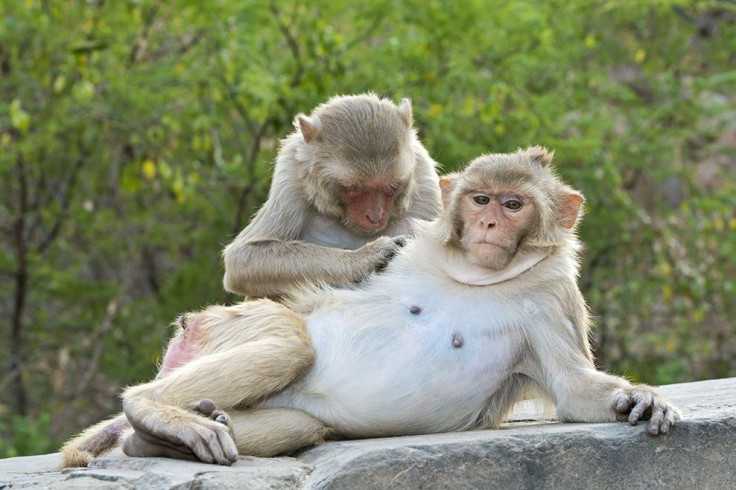Social Network In Monkey Brains Is Clue To Evolution Of Human Mind

Monkey brains have sections dedicated solely to social interactions, a new finding that researchers say could help us better understand the human mind.
Scientists scanning the brains of rhesus macaques found that certain parts were active when the monkeys watched videos of social interactions between other monkeys, but that same network was largely inactive in response to other images. A study in the journal Science said those brain regions that were purely analyzing social interactions are in the same places as the ones in the human brain that are associated with similar processes, like the ones that help us understand other people’s intentions and what they are thinking, which is called the theory of mind.
Read: These 7 Animals Have Happy Friendships With Other Species
As the scientists were showing the monkeys the social videos and scanning their brains, they also followed the monkey’s gaze to see where the primates were looking (tracked by a red dot in the gif below).
The results were “both unexpected and mind-boggling,” researcher Winrich Freiwald said in a statement from Rockefeller University, referring in part to the concept that a brain network would power down when, in the words of the university, it is “denied its preferred input.”
Rhesus macaques are known for being smart and energetic and have close ties to people, including in research. Before humans began venturing past Earth’s atmosphere, the American and Russian space agencies sent up animals to test how a living creature would handle the weightlessness and other effects of space, and rhesus monkeys were among the earliest space travelers. A few of those monkeys, all named Albert, were rocketed up in the late 1940s. In the medical field, the Rh factor in human blood is named after rhesus monkeys, which were involved in the scientific discovery of that antigen.
Read: How Animals Know When to Make Babies
With this new research about the social network in rhesus monkey brains, scientists may have found a brain structure of which humans have a more evolved version — what the study called “an evolutionary forerunner of human mind-reading capabilities.” If that’s true, neuroscience experts may start to better understand how the human mind works and how it developed from its more primitive state into one with such processing power.
And it has possible implications for autism research, as one hallmark of the developmental disorder is an inability to understand what other people are thinking or feeling. “They may not be able to anticipate what others will say or do in various situations,” the Autism Research Institute explains. “In addition, they may have difficulty understanding that their peers or classmates even have thoughts and emotions, and may thus appear to be self-centered, eccentric, or uncaring.”
Researcher Julia Sliwa also noted that the findings suggest humans might not be as advanced or as unique compared to other primates as we may think.
© Copyright IBTimes 2025. All rights reserved.




















